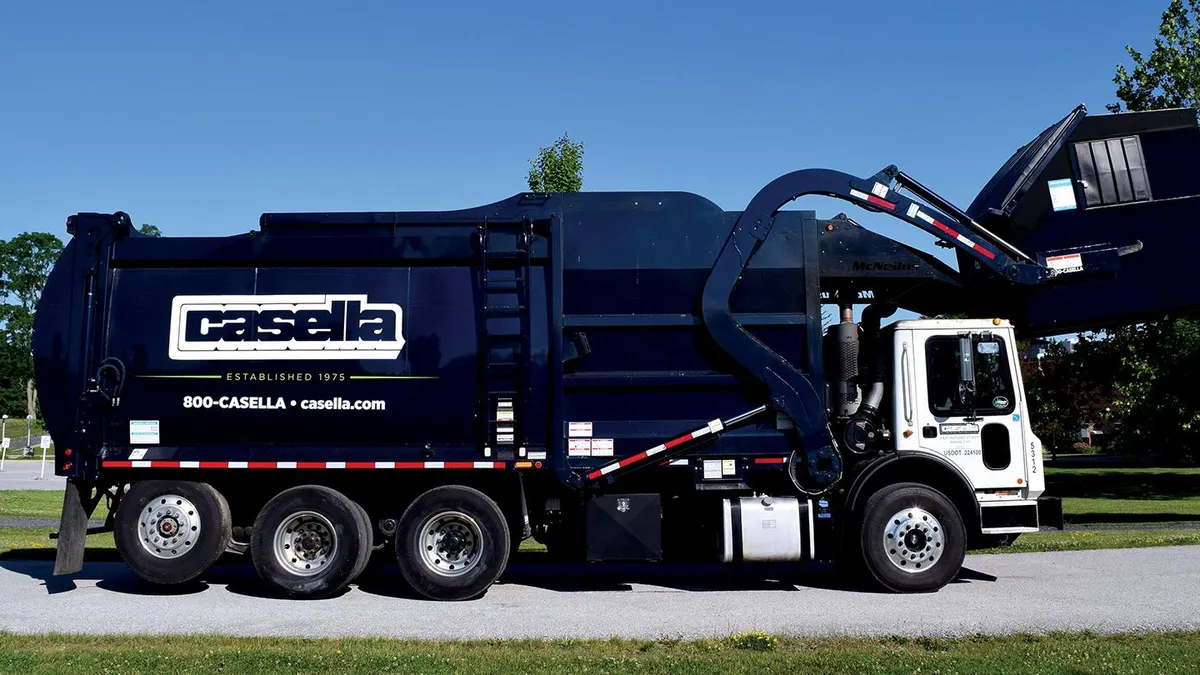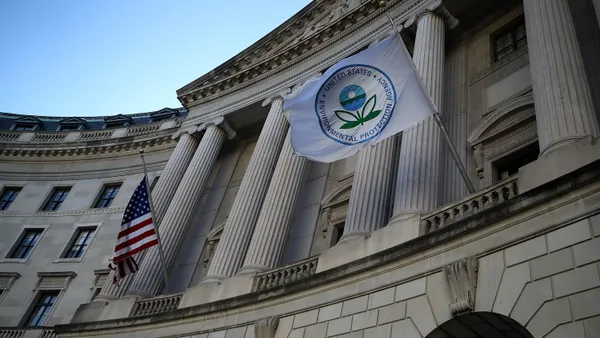Dive Brief:
- Casella Waste Systems reported revenues of $160.3 million for the third quarter of 2017 — up 6% over the previous year — driven by positive increases across almost every category of its business. Aside from expected recycling challenges, the company also saw a 78% increase in leachate expenses due to heavy rain and a $600,000 drop in organics revenues.
- Recycling revenues were up $1.9 million for the quarter, with a 22% increase in average commodity revenue, as compared to last year. Though the recent drop in fiber prices has taken a toll and the company spent an additional $700,000 on labor to improve quality at its MRFs. These costs will largely be absorbed by customers through Casella's sustainability fee. During the earnings call, CEO John Casella also said he expects material to start moving to China again soon and predicted the country's new contamination standards "are not going to be met by anyone."
- Looking ahead, Casella said it was in a "unique position" to grow free cash flow by 10-15% due to its size and "nimbleness." The company also reported the completion of three acquisitions this year for a collective price of $6.3 million and plans to target $20-40 million in new deals per year. That activity could increase over time and isn't on a fixed budget.
Dive Insight:
Despite recycling market challenges, Casella executives sounded more positive than during the previous quarter's call when they reported plans to close a Massachusetts landfill due to regulatory pressure. While the China situation is much larger, and even more out of its control, the company's model may be better situated than others to factor in such fluctuations. CEO John Casella has often talked about how recycling comes with a cost and sees a commodity-based "sustainability/recycling adjustment" fee as the appropriate way to reflect that. This can encompass either the steep drops or relatively recent stabilization of fiber prices in particular as the markets react to China.
While other companies have invested in technology to address new quality expectations, Casella has addressed this by bringing in extra labor and slowing down its MRF lines as needed. The vice president of Casella Recycling described this process in greater detail during a recent webinar hosted by The Recycling Partnership on China. Even if material begins moving back to China "in the near future" as the company predicts, improving the quality of its fiber products is still said to be a priority.
Heading into 2018, some of these operational expenses may continue, though the company may also see savings from new training and career development practices designed to improve efficiency and safety. Casella also expects more momentum on acquisitions once additional deals are finalized and was positive about picking up new municipal contracts in New England. While landfill volume may be tightening in the eastern part of its service area, Casella has an estimated 900,000 tons of excess capacity in New York and Pennsylvania. Ramping up prices at those sites, or moving more waste from eastern states out there, is yet another way the Vermont-based company plans to grow.











